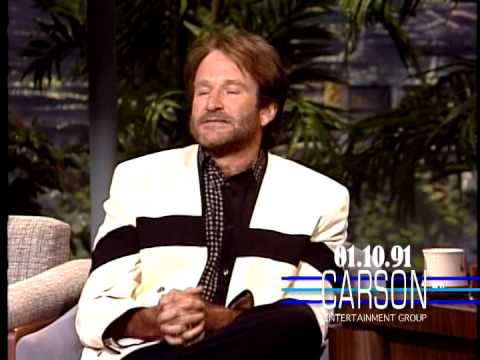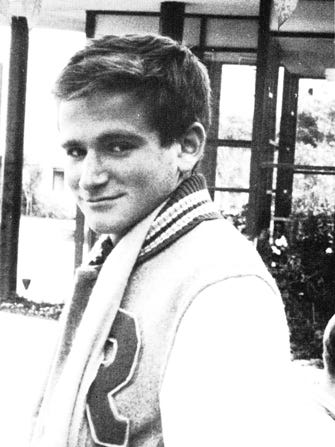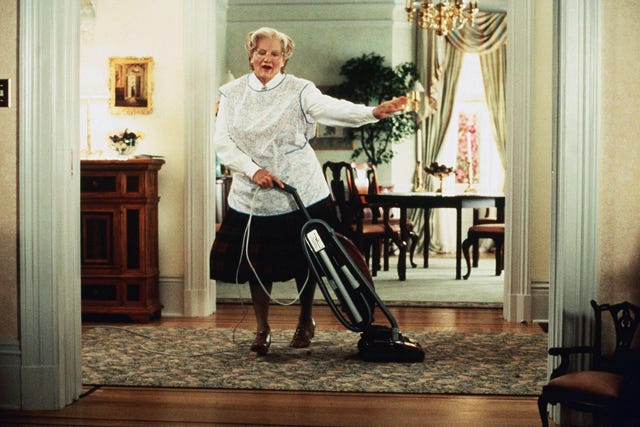
This article was last updated on April 16, 2022
Canada: ![]() Oye! Times readers Get FREE $30 to spend on Amazon, Walmart…
Oye! Times readers Get FREE $30 to spend on Amazon, Walmart…
USA: ![]() Oye! Times readers Get FREE $30 to spend on Amazon, Walmart…
Oye! Times readers Get FREE $30 to spend on Amazon, Walmart…
 I spent last night on Twitter, blowing through my data plan with constant feed-refreshing while reruns of The Office played in the background. I wanted something familiar and light to drown out my brain a little, but 10 minutes in had Michael Scott doing a Robin Williams impression, and I thought, “Fuck you, my television.” Celebrity deaths happen all the time, but this one feels different.
I spent last night on Twitter, blowing through my data plan with constant feed-refreshing while reruns of The Office played in the background. I wanted something familiar and light to drown out my brain a little, but 10 minutes in had Michael Scott doing a Robin Williams impression, and I thought, “Fuck you, my television.” Celebrity deaths happen all the time, but this one feels different.
I felt like a dope for being so shattered at the death of someone I’d never met. I sat staring at celebrity reactions on Twitter feeling like at least they had more right to grieve, but here I was, crumpled and weepy and angry, and I wasn’t faking it. I remembered watching Williams’ last stand-up special, Weapons of Self-Destruction, a few years ago and thinking, “I’m going to be so sad when Robin Williams dies.” I thought it was sort of a funny, weird thing to say, so I texted it to a friend, feeling very quirky and precocious. “Um, yeah?” she wrote back.
But, I think that underneath that selfish little quip was a real anxiety about the inevitable loss of a figure who felt so constant and crucial to my understanding of the world. Like so many, I enjoyed a ’90s childhood colored by such resonant films as Dead Poets Society, Hook, Aladdin, Mrs. Doubtfire, and Jumanji. In high school and college, I found a whole new canon of Williams’ work with Awakenings, The World According To Garp, and The Birdcage. Of equal, if not greater impact was his influence on the the world of comedy, from bizarro roles like Mork to the wild, sweaty mania of his stand-up persona. God, to measure Williams’ presence in contemporary culture would be impossible at this point. A hundred years from now, who will be able to say just what he was: the man who sang “Blame Canada” at the Oscars, and whispered “It’s not your fault” in Good Will Hunting. He was a sucker punch right in the heart.
That’s part of the ache we all feel right now, but there’s another piece, too — another gift that’s been taken away from us. Robin Williams gave himself to us, not just as a performer but as a human, flawed and damaged, like the rest of us. In between these iconic roles, Williams openly shared his personal battles.

When his first marriage fell apart in 1988, it was a public, messy story complete with “affair with the nanny” headlines. When his second ended in divorce as well, 20 years later, Williams was open about what a nasty, killing tangle such a life event is. Sometimes, he joked about it, riffing on Carson: “Ah yes, ‘divorce,’ from the Latin word meaning to rip out a man’s genitals through his wallet.” But, he was honest about the hell his family went through, and it was clear he knew his role.
Speaking of his relapse in 2006, he explained that it was his wife and children who intervened, and “it was not an intervention so much as an ultimatum.” And, though his finances took a severe hit in the divorces, he never whined about it. Selling a second home is still selling a second home, after all. “There are bills to pay. My life has downsized, in a good way…Are things good with my exes? Yes. But do I need that lifestyle? No.”
I saw Mrs. Doubtfire during a weekend visit with my own father. As a child of divorce, there was no greater comfort than that film, but my father turned to me and asked if we could leave halfway through. Williams’ performance as a dad unwillingly separated from his children was just too raw and resonant, and though we made it through to the end, the car ride home became an impromptu therapy session. As an adult I realize just how vital that moment was, and why I watched that movie hundreds of times in the years after. It wasn’t just the near-perfect comedy of the film, but the reminder of my own father’s struggle and his irrevocable love for me during that awful time in our own family history.
Williams gave us the gift of his vulnerability and that is what made us love him as a performer and a person. In his honest, gentle way, he revealed the horrific truth of addiction and mental illness. Again, there was the humor angle. “Cocaine — paranoid and impotent, what fun.” But, behind that, he admitted his addiction was like anyone else’s: an attempt to quell the dread.
Robin Williams didn’t turn his story into redemption. He was never better, perfect, cured, and on top of the world. Did he consider suicide? Of course. During his 2010 interview onWTF with Marc Maron, he spoke frankly about the lowest points of his depression and the ugliness of his relapses with alcohol. Though he was in a more peaceful, contented place at that time, Williams clearly knew there was no such thing as “all better.” (For those who haven’t heard the podcast interview, Maron reposted as a free download last night.)
What Williams did with interviews like this was help to normalize the damning specter of mental illness and addiction. He made it that much more okay to ask for help. Because, it is normal to need help. It is not rare or shameful to wander into darkness, stuckness, and confusion in life, and the first step — whether you’re a drunk or depressed or trapped by some other foil of the mind — is admitting that you have a problem. Williams showed us that the face of depression and addiction is still a face worthy of love and admiration. He was not a wonderful man despite his struggles. He was a wonderful man.
Williams’ work and the tenderness he brought to his characters are a big part of why we’ll miss him. But, his presence on Earth is greater than that. He was a joy and a touchstone, infinitely human and yet a wizard, too. He cracked open our hearts and made us feel everything inside — even the dark parts, even the parts we don’t want touched. He had that power because he showed us his own. That is the lesson we should take from his life: reveal yourself, try at things, fail at things, then try again and again and again. Live — as hard as you can.
Click HERE to read more from Refinery29.

Be the first to comment